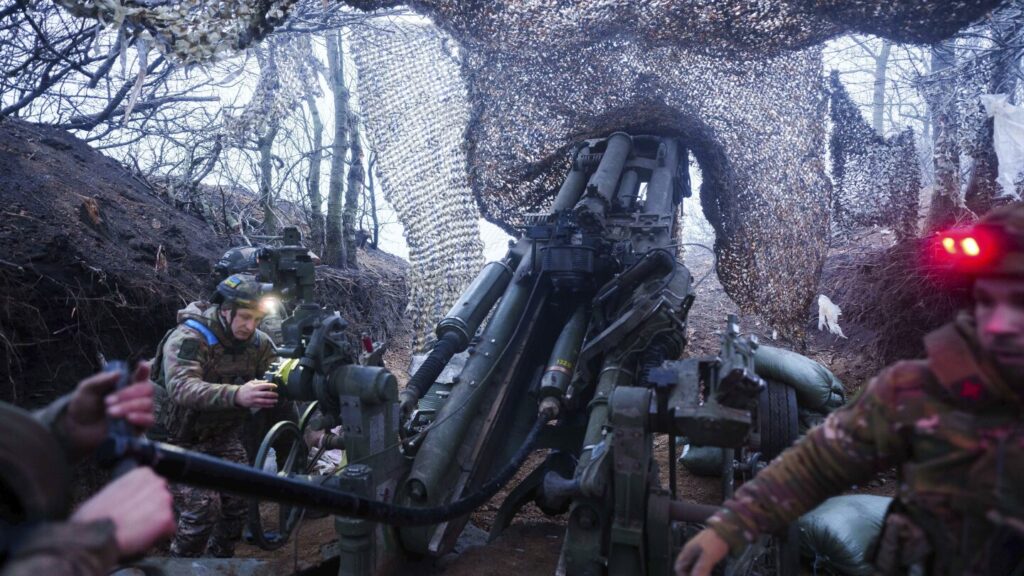In the ongoing conflict in the Pokrovsk region of Ukraine, Ukrainian forces are facing critical challenges. They are losing ground near a vital supply hub, with Russian forces employing new tactics such as attacking flanks and utilizing drones to control key routes. The Trump administration’s push for negotiations and the freezing of foreign aid to Ukraine have added to Ukrainian officials’ concerns. Ukrainian troops are struggling with logistical issues, exacerbated by poor weather hindering surveillance operations.
The recent loss of Velyka Novosilka, a significant gain for Kyiv, highlights the precarious situation. Russian forces have intensified their presence near the Dnipropetrovsk region, preparing for further advances. Ukrainian logistics are under severe threat, with key routes vulnerable to Russian drone attacks, limiting troop movements and supply deliveries. The shortage of infantry troops, coupled with inexperienced new recruits, has strained Ukrainian defenses, with battle-hardened units stretched thin.
The dire situation underscores the importance of effective logistics in warfare, a key factor highlighted by military personnel on the ground. Ukrainian forces are struggling to counter the Russian advances and maintain defensive lines amid dwindling resources and mounting pressure. As the conflict escalates, the need for strategic planning and support becomes increasingly critical to prevent further losses and sustain the Ukrainian defense. The challenges faced by Ukrainian troops in Pokrovsk underscore the urgent need for assistance and strategic coordination to address the evolving dynamics of the conflict.

